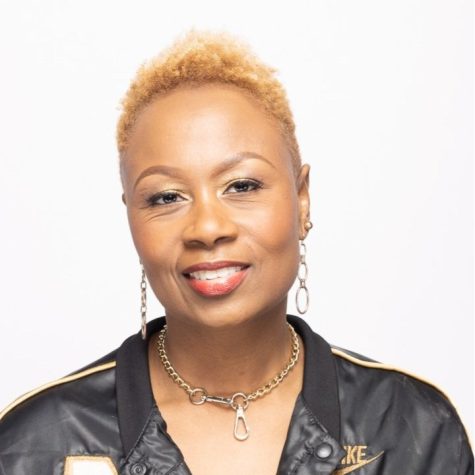‘Black Hair in a White World’ empowers Black women who wear their hair naturally
February 18, 2023
In her first year of college, Tameka Ellington got a job at an amusement park and was told she could not wear her hair naturally to work because it wasn’t “the all American look.”
Today, having worn her hair naturally since 1998, she empowers and educates other Black women who do the same.
Ellington and other academic contributors of her upcoming book, “Black Hair in a White World,” shared their personal experiences of growing up as Black women with textured hair on a Zoom meeting Thursday evening.
Panelists shared memories of getting their hair done as kids and unpacked emotions they felt because of that. Some memories brought feelings of empowerment — others brought embarrassment and self-doubt.
“You get a negative message about our natural texture and the fact that it needs to be straightened,” said Taura Taylor, an assistant professor at Morehouse. “But once it’s straightened, you can’t touch it. It’s too precious.”
Taylor and Ellington explained the restrictions that Black women are faced with when they choose to wear their hair straightened.

“A lot of Black women don’t know how to swim or don’t go to the gym because of their hair,” Ellington said. “There’s so many other things that we are excluded from. Our quality of life is limited because of our choice to wear our hair straightened.”
Terresa Moses, an assistant professor at the University of Minnesota, shared stories of being compared to the white Eurocentric beauty standard from her own Black family members.
“It was anti-blackness from my relatives,” Moses said. “I remember this comparison about what’s beautiful.”
Afiya Mbilishaka, a psychologist at Ma’at Psychological Services, shared the positivity her mother instilled in her from her youth through empowering her to take care of and appreciate her hair.
With love, her mother gave her options for how she wore her hair. Her mother’s approach to hair was gentle.
Now, as a therapist and stylist, Mbilishaka recognizes not everyone shares that experience of care for their hair and aims to create a positive and affirming environment for her clients.
“Black Hair in a White World” is an academic research book about the history, social perceptions and increasing acceptance of Black hair in America. Releasing in July 2023 by the Kent State University Press, it will contribute to the ongoing discussions around breaking the stereotypes about Black hair in a professional and societal view.
Ellington first started her research on Black hair at Kent State University. She wants non-Black people to see and understand the problems that may not directly affect them, yet they are still challenges faced today by Black women.
“My white colleagues questioned the rigor of the work I was doing,” Ellington said.
“Even my Black mentor said, ‘Tameka, I’m really nervous for you to do your research about that. I want you to get a tenure promotion. They don’t value our work,’” she said. “I was able to break that barrier.”
Irene Bowser is a reporter. You can contact her at [email protected].
Avery Savage is a TV2 reporter. Contact her at [email protected].
























